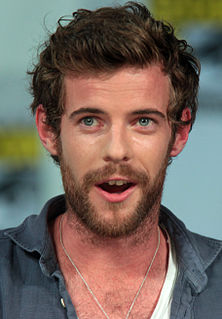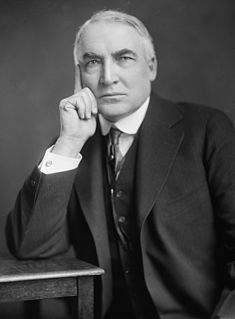A Quote by Michael Ende
I wonder, what's in a book while it's closed. Oh, I know it's full of letters printed on paper, but all the same, something must be happening, because as soon as I open it, there's a whole story with people I don't know yet and all kinds of adventures, deeds and battles. And sometimes there are storms at sea, or it takes you to strange cities and countries. All those things are somehow shut in a book. Of course you have to read it to find out. But it's already there, that's the funny thing. I just wish I knew how it could be.
Quote Topics
Adventures
All Kinds
Battles
Because
Book
Cities
Closed
Could
Countries
Course
Deeds
Find
Full
Funny
Funny Thing
Happening
How
Just
Kinds
Knew
Know
Letters
Must
Oh
Open
Out
Paper
People
Printed
Read
Same
Sea
Shut
Somehow
Something
Sometimes
Soon
Storms
Story
Strange
Takes
Thing
Things
Those
While
Whole
Wish
Wonder
Related Quotes
I get letters from two kinds of readers. History buffs, who love to read history and biography for fun, and then kids who want to be writers but who rarely come out and say so in their letters. You can tell by the questions they ask - How did you get your ?rst book published? How long do you spend on a book? So I guess those are the readers that I'm writing for - kids who enjoy that kind of book, because they're interested in history, in other people's lives, in what has happened in the world. I believe that they're the ones who are going to be the movers and shakers.
When I had finished the book I knew that no matter what Scott did, nor how he behaved, I must know it was like a sickness and be of any help I could to him and try to be a good friend. He had many good, good friends, more than anyone I knew. But I enlisted as one more, whether I could be of any use to him or not. If he could write a book as fine as The Great Gatsby I was sure that he could write an even better one. I did not know Zelda yet, and so I did not know the terrible odds that were against him. But we were to find them out soon enough.
A book is not necessarily made of paper. A book is not necessarily made to be read on a Kindle. A book is a collection of text, organized in one of a variety of ways. You could say that words printed on paper and bound between cloth covers will someday be obsolete. But if and when that day comes, there will still be a thing called books.
There are books full of great writing that don't have very good stories. Read sometimes for the story... don't be like the book-snobs who won't do that. Read sometimes for the words--the language. Don't be like the play-it-safers who won't do that. But when you find a book that has both a good story and good words, treasure that book.
You know, not every good book needs to be a movie, or a television series, or a video game. There's great work in those mediums, of course, but sometimes a book should remain a book. I still believe nothing tells a story with the richness and complexity of a good novel. When people say they think a book would make a good movie, they say this sometimes because, if it worked, they already saw all the images in the movie theatre that is in their brains. And sometimes that is the way it should stay.
You just want to find a story that grabs you and that you've never seen before, but somehow you can't imagine it not existing. It's like a good book. What makes a good book is hard to say. I don't know. I just look for something that grabs me. I don't have a way of looking for a project, and I don't know many people that do. It's just year to year, and what's going around and what's there.
Still, I wonder if we shall ever be put into songs or tales. We're in one, of course; but I mean: put into words, you know, told by the fireside, or read out loud of a great big book with red and black letters, years and years afterwards. And people will say: 'Let's hear about Frodo and the Ring' and they'll say 'Oh yes, that's one of my favorite stories.
I myself, as I'm writing, don't know who did it. The readers and I are on the same ground. When I start to write a story, I don't know the conclusion at all and I don't know what's going to happen next. If there is a murder case as the first thing, I don't know who the killer is. I write the book because I would like to find out. If I know who the killer is, there's no purpose to writing the story.
In our time, we have become too interested in the artist and his or her character and experience as a way of understanding art. In my view, you should be able to read a book or see a film without knowing a single thing about conditions or circumstances or character of the artist, and experience the work to the full without such information. Sometimes I feel - speaking for myself - that people know much too much about me, and I wish people knew less and could just read these books and respond to them purely as words on a page.
In a world of intrusive technology, we must engage in a kind of struggle if we wish to sustain moments of solitude. E-reading opens the door to distraction. It invites connectivity and clicking and purchasing. The closed network of a printed book, on the other hand, seems to offer greater serenity. It harks back to a pre-jacked-in age. Cloth, paper, ink: For these read helmet, cuirass, shield. They afford a degree of protection and make possible a less intermediated, less fractured experience. They guard our aloneness. That is why I love them, and why I read printed books still.
If I'm writing a story and you're reading it, or vice versa, you took time out of your day to pick up my book. I think the one thing that will kill that relationship is if you feel me condescending to you in the process. And how does that happen? Well, it happens when I know more than you do, and when I know that I know more than you do, and I'm holding it back from you. So that I can then manipulate you at the end. You know, you think about like in a dating situation how terrible that would be, it's the same thing with a book.
I think of my success as a kind of fluke. How else could I possibly think of it? And although it's a banal thing to say, I wrote my book because I was writing my book. At first I didn't know I was writing it, and one of the amazing things that happened as I was putting sentences down on paper is that some of the things that are most sacred and important to me rose to the surface of the prose.
The funny thing is, nationalism only could have come about in Europe after the invention of printing. You could have this thing that was a book in a vernacular language, and you could imagine there were other readers of this book who you couldn't see, but they were a theoretical union of readers who all use the same language. That is kind of a prerequisite for a national fantasy. You need that thing, and it's a strange thing.





































